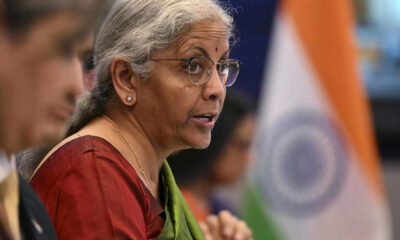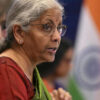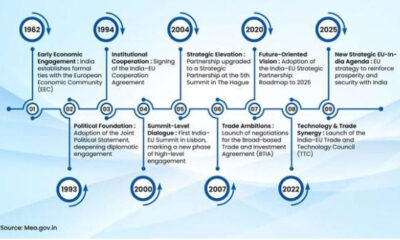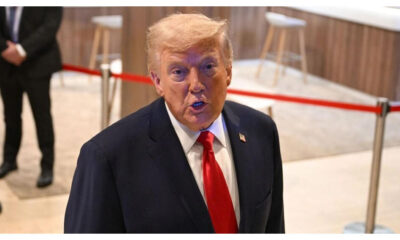In Bihar’s Voter Roll Drive, Forms Accepted Without Documents Amid Aadhaar Confusion
As Bihar undergoes a massive Special Intensive Revision (SIR) of its electoral rolls ahead of the state elections, serious questions are emerging about the consistency and legality of the process. Booth Level Officers (BLOs), the foot soldiers of the Election Commission, are reportedly accepting and submitting voter enumeration forms without any supporting documents—relying solely on personal discretion.
An investigation by India Today in Hajipur and Muzaffarpur districts reveals a growing trend: BLOs are collecting forms without Aadhaar, birth certificates, or any official identification. The reliance on verbal affirmations, local familiarity, and trust is becoming the norm, rather than exception. This comes amid Supreme Court scrutiny, even as the court has allowed the process to continue for now.
What Is the Special Intensive Revision (SIR)?
The SIR is a door-to-door voter verification exercise ordered by the Election Commission of India (ECI). It aims to:
- Identify and remove deceased or duplicate voters
- Verify new or missing entries
- Update personal details and photos
The process is rooted in comparing current entries against the 2003 electoral roll and the latest official database. BLOs are expected to use a dedicated mobile app to upload details and supporting documents for each applicant.
But on the ground, the rules are being bent or bypassed entirely.
Discretion Over Documentation
Multiple BLOs interviewed by India Today confirmed that instructions have shifted from strict document verification to a more flexible “submit now, verify later” approach.
“We were initially told not to accept forms without documents. Now, the message is: take the form first, collect the document later if required,” a BLO from Hajipur said.
Using the mobile app, BLOs are uploading names, dates of birth, and photos without any scanned documents. The app permits this, as long as the BLO logs in using their OTP-based credentials. The logic, according to officials, is that since BLOs are locals and know most residents, they can be trusted to verify details.
“If objections arise or if the Electoral Registration Officer (ERO) asks for proof, we’ll reach out to the applicant later,” said a BLO in Muzaffarpur.
In some cases, BLOs are accepting Aadhaar numbers even though the form marks it as optional, while in others, they are not. The application of discretion varies from booth to booth, adding to the confusion.
Aadhaar Confusion and Inconsistencies
The role of Aadhaar in voter verification remains unclear. Although not mandatory, Aadhaar is often requested by BLOs. However, some forms get submitted without it; others are rejected for the same reason.
A BLO sahayak in Hajipur said,
“Until a few days ago, Aadhaar wasn’t even being accepted by the app. Now, even without a supporting document, we’re able to submit a form as long as we have Aadhaar, Name, DOB, and a signature.”
Supervisors overseeing multiple booths confirmed this is largely a data-cleaning exercise.
“We’re primarily tasked with identifying dead or duplicate voters. A proper document review will happen after August 25, based on further EC instructions.”
India Today filmed BLOs submitting forms without uploading documents, highlighting the ease and inconsistency in the digital process. It also showed some voters fearful of sharing documents, especially amid rumors that the exercise is linked to citizenship verification.
Supreme Court Weighs In
The Supreme Court, hearing a batch of petitions seeking a stay on the SIR, refused to halt the process but raised serious concerns about its conduct.
The court questioned:
- Whether the EC has the legal authority to conduct SIR in its current form
- Whether the process aligns with electoral laws
- Whether the timing of the exercise, so close to elections, is appropriate and fair
The court also flagged the inconsistent treatment of documents like Aadhaar, ration cards, and EPICs (Electors Photo Identity Cards), asking why widely held documents are not being uniformly accepted. It reminded the EC not to blur the lines between electoral verification and citizenship screening, the latter being the Union Home Ministry’s domain.
The next hearing is on July 28, with the EC ordered to submit a counter-affidavit by July 21.
Ground-Level Impact and Fears
On the ground, anxiety among voters is noticeable. In Muzaffarpur, one female BLO described multiple visits to households where residents were reluctant to engage.
“They think this is some new way to deny them voting rights. They fear the process could be used to keep them out,” she said.
Others, however, are cooperating. BLOs were seen moving from door to door, often in challenging weather, explaining the process and encouraging people to submit their forms—with or without documents.
“We’re telling people: just fill the form now. You can give documents later if asked,” said one BLO who had been in the field for ten straight days.
Bottom Line: Trust Over Process?
While the SIR aims to strengthen the electoral rolls by cleaning out duplicates and dead entries, the current implementation has opened the door to serious risks:
- Lack of uniform guidelines
- Discretionary document collection
- Inconsistent Aadhaar handling
- Potential for arbitrary inclusion/exclusion
In one of India’s most politically sensitive states, the electoral process is being shaped not by a consistent national policy, but by individual BLO discretion, technical app features, and ambiguous instructions.
With legal scrutiny intensifying and the electoral calendar ticking, the Election Commission faces a critical test. The SIR may still be a step toward cleaner voter rolls—but only if it protects inclusivity, follows law, and restores public confidence.
IT.




























